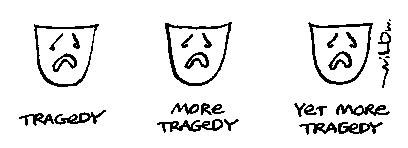Could there be subtle changes taking place at Radio 4 HQ? Late last Friday night, A Good Read was dropped in favour of a repeat of a half-hour profile of the extraordinary Burmese campaigner Aung San Suu Kyi. Maybe the new Controller of Radio 4, Gwyneth Williams, who has spent much of her BBC career at Bush House, most recently as director of the English branch of the World Service, is beginning her makeover of the station, tilting its axis of interest outwards to the world beyond Portland Place.
The timing was perfect — just after the news broke of Suu’s imminent release from house arrest — which set me thinking about Burma and its democracy campaign and struggling to recall why Suu had been imprisoned in the first place. The programme’s title, Freedom from Fear, comes from Suu herself, and her passionate belief that it’s not power that corrupts but fear: ‘For not only does fear stifle and slowly destroy all sense of right and wrong, it so often lies at the root of corruption.’ A novel understanding of the abuse of power that has far-reaching applications. But why, I wanted to know, had she sacrificed so much for her country, even when this meant abandoning her two sons and her husband as he lay dying of cancer?
Mike Wooldridge’s short study (movingly produced by Simon Hollis) was such an inspiring listen, at the end of a grey week. You’ll probably have read by now all you need to know about how Aung San Suu Kyi became embroiled in the struggle for freedom in Burma, her father’s legacy, her dignity, her principles, the extraordinary way in which, armed only with integrity and courage she has so successfully intimidated the military leaders of her country. But what this radio profile gave us was the sound of her voice, the way she speaks, measured, restrained, poised, which says so much about why she has become such a powerful icon. Her message is clearly stated, her choice of words precise, unclouded by equivocation or worldly aspiration. The people of Burma have lived too long in ‘a precarious state of passive apprehension’, she argues. They are ‘as water in the cupped hands of the powers that be’.
What kept her going through all those long years of isolation in her dark and decrepit lakeside home where even her piano has crumbled in the torpid heat? Her ability to meditate, truly contemplate, and her passion for radio, listening for up to six hours each day to the World Service.
It was humbling, and also refining. A chance to think more clearly ourselves about what matters. The following night I happened upon the repeat of last week’s The Moral Maze, a Radio 4 programme I usually try to avoid: too many words, too many decibels. This programme, though, was of the moment, cross-examining a panel of chosen ‘experts’ on the question troubling many households here in Britain: the benefits crisis. What do we think of the coalition’s proposal that the unemployed should work for free if they want to keep on receiving benefit? For four weeks they will have to work 30 hours a week, unpaid, on projects deemed suitable by the powers that be. As one of the interlocutors pointed out, those impelled to do this may well have to work alongside those being paid for the same job, and also those who have been sentenced to community service for misdemeanours against their neighbours.
It’s one of those seemingly benign new policies that may have radical and unintended consequences. Perhaps an indicator of this is that it brings along with it a catalogue of new words, with vague meanings, especially ‘conditionality’ and ‘workfare’. The arguments are difficult to reconcile: how do you encourage people who’ve lost one job to take the only low-paid jobs available, which are only on the market because no one else wants to do them? How do you reform a welfare state in radical need of change without imposing hardships on the weakest and most vulnerable members of the community? But what’s really so lowering about these debates is the language of exchange. The words being flung around were in stark contrast to what I had heard the previous night on the profile of Aung San Suu Kyi: instead of moral beauty, courage, sacrifice, strength, dedication and commitment, we heard about character flaws, culture of defeat, ‘help and hassle’, entitlement. The unemployed will be ‘compelled’ to take these jobs; they will have no choice.
It was also a bit startling to hear educated commentators such as Michael Portillo declaring, ‘The Bible is really all about work’, after quoting from one of St Paul’s letters to the people of Thessalonia. A sure sign that the arguments he’s propounding have been built on sandy foundations, rather than on stark but sparkling granite.






Comments